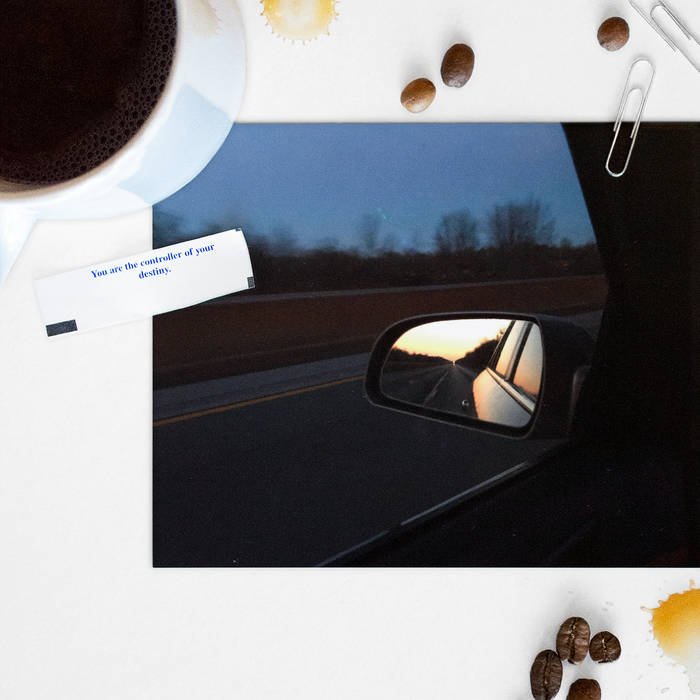Water Twice Weekly: Safari Room’s Complex House Plants
Taking care of plants looks glamorous on sepia-coated Instagram pages. Whether they’re nestled into DIY macrame hangers or perched on perpetually white window sills, it’s easy to forget the effort that goes into taking care of living things. They might have leaves and talk less, but house plants are a lot like us.
Nashville indie-rock band Safari Room took this concept seriously in their sophomore album, Complex House Plants.
“We are all just people who were completely sedentary for a while,” Koukol said. “But we have so much going on in our minds. The idea behind the record was truly us coming together and also learning about self-love.”
After meeting at Belmont University circa 2018, Safari Room found its holy trinity only recently: Alec Koukol (songwriter/lead vocalist/guitarist), Chris Collier (guitar), and Austin Drewry (drums). They began touring in 2019 and released their full-length debut album Look Me Up When You Get There in 2020.
Complex House Plants is more ambient and mellow than their debut. The record’s tone is somber and at times almost desperate, but not so much so that it invokes a skip-through of the record. Instead, its rawness makes you want to sit on the curb and share a cigarette with it.
The second track “Best of Me” features some of this mood: “Feeling like the world is upside down/ Give me a sign that I’ll end up on my feet again.”
Still reeling from the effects that the last few years had and continue to have on the world at large, this lyric is poignant. Its simplicity harps on the fact that the majority of people are feeling the same thing, even if we can’t express it. When all seems to go awry, we keep our eyes peeled for signs of hope.
Where Look Me Up When You Get There seems to ponder the past, Complex House Plants focuses on the present. It navigates the nature of healing through themes of loneliness, an exploration of self-worth, and what drives us to move forward. Tracks like “All is Said and Done” highlight the unpredictability of life and pose one major survival mechanism: holding on.
But holding onto what lies ahead, not what once was.
“There’s a beauty to letting go and moving on/ And after all is said and done, you'll find love,” sings Koukol.
Complex House Plants explores the concept of self-love through the love of other things. Self-love can often be diluted to a remedial understanding of isolation, reading a few self-help books, and drinking matcha, but Koukol breaks these superficial boundaries. Whether it's reconciling with the past, connecting more deeply with yourself, or working connecting through creative projects, love takes many shapes.
“I think learning to love yourself is so incredibly important and I haven’t figured it out entirely,” he said. “It’s still a process. Recording [Complex House Plants] was about being friends on the same plane again and connecting through the same project.”
Amidst the cathartic trance that drummer Austin Drewry and Koukol concoct with their dreamy vocals and bass, guitarist Chris Collier’s gentle solos bring this record to life. Although the group calls itself “midwest emo, assembled in Nashville,” their sound is much more likable and generally approachable than a lot of “midwest emo.” If Safari Room were a pop punk guy stereotype, they’d be the straight-edge bassist with a long-term girlfriend.
Three guys singing pseudo-pop punk might not hint at the best organizational skills, but Safari Room is an industry professional’s dream. When he’s not in the studio or trying to transcribe the human condition, he’s booking shows across the midwest, designing press packages, and acting as the frontman-manager-PR-agent-musical-superman.
“I truly think that the best education I could have gotten was just going out and doing it, “ Koukol said. “Screwing up. Maybe have success and “unsuccess.” Learning from those experiences about what works, what doesn’t work, and how to work smarter.”
Although managing all these titles is nothing short of complicated and messy, Koukol is eager to learn as much as he can about what he loves.
“If you want your art to be something, you have to be realistic and call it a business,” Koukol said. “It doesn’t have to be in a cold and callous way, but there are definitely things that have to be thought of pretty directly.”
But the boundary between business and art is clear, and Safari Room’s sophomore album is the perfect display of the group's already evident evolution.
The second to last track on Complex House Plants features imagery of someone crying in their garden after the world has let them down. It’s a confirmation of the fluidity of all things in life: emotions, experiences, growth, love, and loss. House plants, much like people, are always more difficult to keep up with than anticipated. Sometimes you just need to water them more than twice weekly. But luckily, even tears are water.
Until next time,
Rocka out
Find Safari Room.

